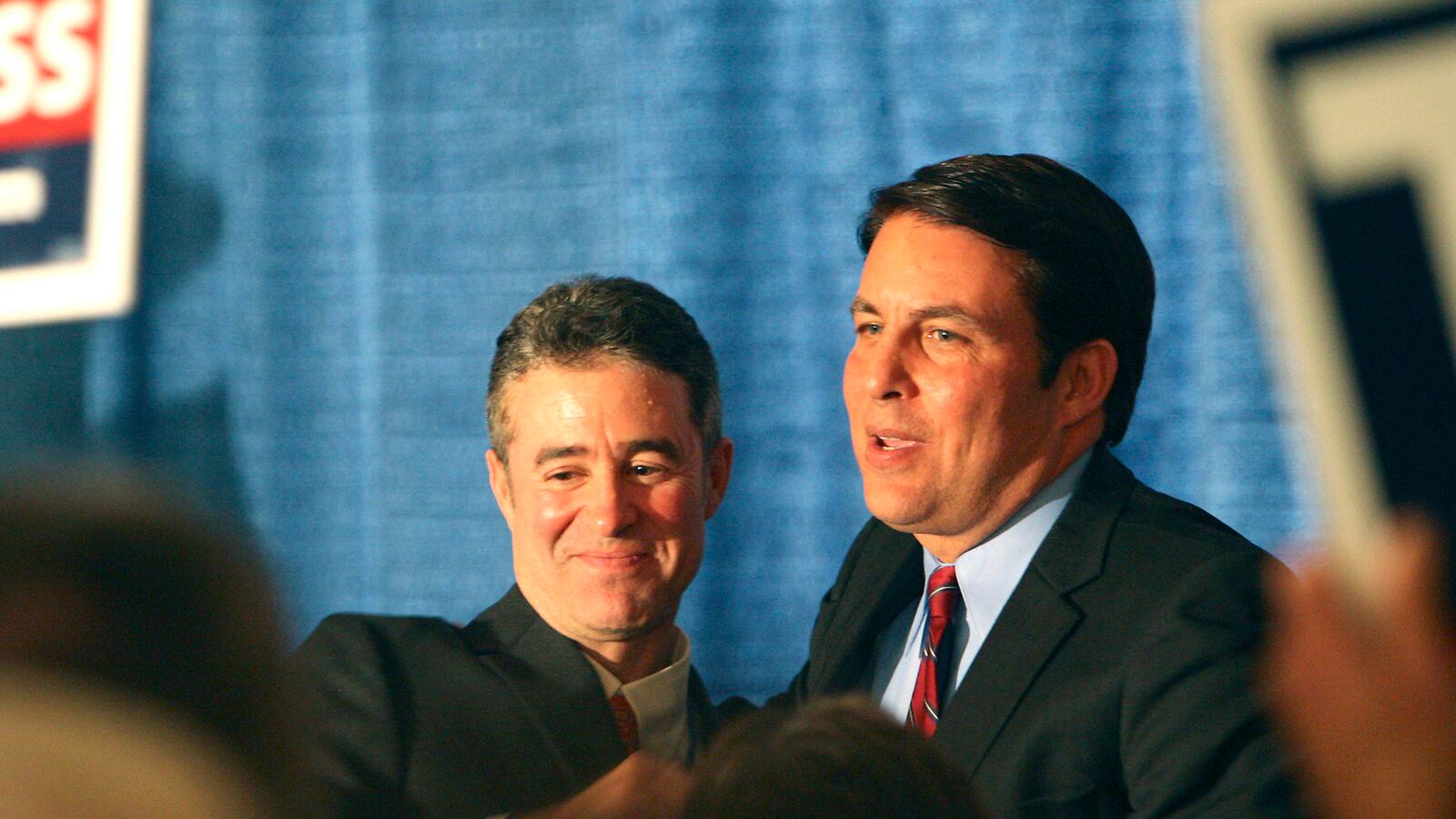2014 was supposed to be a banner year for gay Republicans. In three swing House seats, the GOP seemed poised to elect openly gay candidates, any one of whom would be the first out Republican to be elected to Congress. But in the past week, thanks to two elections and one endorsement, the odds of the House Republican caucus having an openly gay member in 2015 have gone down dramatically.
The biggest blow for gay Republicans came in a Democratic primary. In Massachusetts, Rep. John Tierney, an incumbent Democrat tainted by scandal, lost to first-time candidate and Iraq War veteran Seth Moulton. In 2012, the nine-term incumbent had narrowly won in the deep blue district with both Barack Obama and Elizabeth Warren at the top of the ballot over openly gay Republican Richard Tisei, who’s running again this year. In both races, the conviction of Tierney’s wife of tax fraud linked to a gambling ring had left the congressman vulnerable. Now, a Democratic strategist told The Daily Beast, “Moulton’s win certainly increases Dem chances of keeping the seat, and Tisei’s entire campaign strategy went out the window.”
But because the bitterness of the primary race, in which Tierney attacked Moulton as a Republican stalking horse, at least one GOP insider sounded hopeful that frustrated Tierney voters would back the relatively moderate Tisei in November instead. The race will still be very competitive—The Boston Globe even endorsed Tisei in 2012, and he will be boosted by a strong GOP gubernatorial candidate. But without a damaged Democrat, electing a Republican to federal office in Massachusetts will always be an uphill fight.
Tisei didn’t get the worst news of the gay Republican congressional hopefuls on Tuesday night. Dan Innis, the dean of the University of New Hampshire’s business school, narrowly lost his primary in New Hampshire’s 1st Congressional District to former Rep. Frank Guinta by a margin of 49-40. The Republican hopeful featured his husband in campaign ads and was boosted by a super PAC run by a California businessman. But that wasn’t enough to best Guinta, a former mayor of Manchester who previously served one term representing the district in Congress. The result likely won’t have any political impact for Republican efforts to take the seat in November, and Washington Republicans would have been happy with either Guinta or Innis as a candidate against liberal incumbent Carol Shea-Porter. But one Republican familiar with the Granite State did grumble that Inniss’ loss would hurt the party long-term. After all, unlike Guinta, Innis would have been a fresh new face for the GOP in a very purple swing state.
Carl DiMaio, the Republican candidate in a San Diego-based swing district, didn’t receive any bad electoral news, but his campaign suffered a major blow when the conservative U.S. Chamber of Commerce backed his opponent, first-term Democrat Scott Peters. DiMaio’s campaign then compounded the damage by attacking the chamber. On Twitter, Rob Engstrom, a spokesman for the chamber, fired back at DeMaio, noting that he had unsuccessfully tried to gain the business lobby’s support for over a year and said that the San Diego Republican’s campaign was “imploding.”
Things aren’t quite that bad for DeMaio. The one independent poll of the race, taken in June, gives him a seven-point lead. Further, DeMaio has been a dogged fundraiser and had $1.4 million on hand in his most recent FEC filing. The race is considered a toss-up by outside observers and is expected to go down to the wire.
Electing one or two openly gay congressman wouldn’t mark a transformation in the GOP on social issues. But it would serve as an important signal to moderate and libertarian voters that the party is not totally dominated by its social conservative wing. At a time when LGBT elected Democrats are increasingly commonplace, few Republicans have been first elected to office while openly gay. (Two former congressman, Jim Kolbe of Arizona and Steve Gunderson of Wisconsin, were outed in the 1990s, long after their first election to Capitol Hill). Still, this week’s events make it much less likely that the party will finally have an openly gay standard bearer on Capitol Hill next year.






